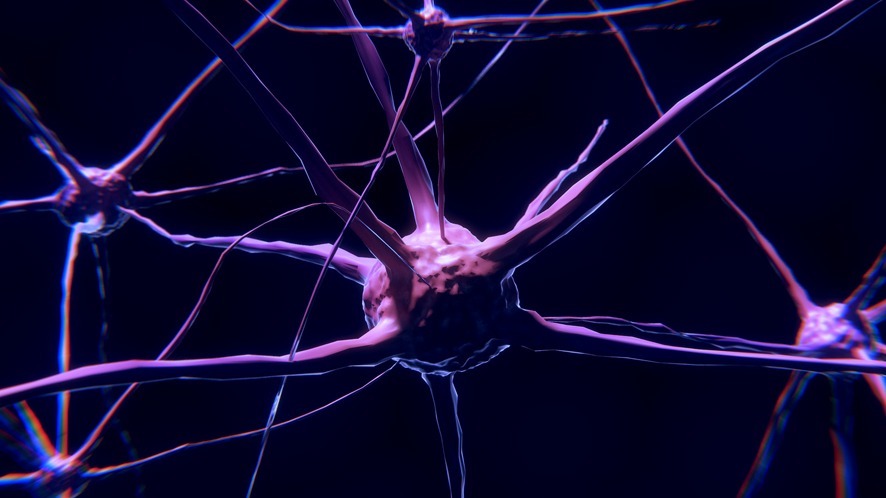Overview
Intrduction I Origin of toxic relationships
Every relationship is unique because individuals connect in personal ways, making it difficult to clearly identify a toxic relationship as such. The dynamics are often complex. In this article, you’ll see that toxic relationships frequently build on mutual reactions. Peter says something; Helena responds in turn. Then, Peter leaves, and Helena blames herself, and so on. The toxicity develops from a pattern of responses to each other. This is how a toxic relationship forms.
When a toxic relationship stems from mutual reactions, we need to look deeper.
A relationship always involves at least two people, each reacting in their own way. The other person also contributes to the toxic relationship. However, we cannot change others directly. The only option we have is to start with ourselves. The inner work of Freer Life (Freieres Leen) begins right here. Because you, too, contribute to such a relationship by reacting in ways that may be harmful to yourself and the relationship itself.
What few counselors and coaches highlight is: toxic relationships always start with ourselves. It’s uncomfortable but true, even if the other person hurts, devalues, or ignores you—an obvious sign of toxicity! Your part in the toxicity could be staying in the situation without setting clear boundaries.
At some point in your own mind, there may be a toxic relationship with yourself.
This article aims to offer indicators you can use to assess if you’re in a toxic relationship. These indicators mostly reflect back on yourself. Take a moment to see if any of them resonate.
The key question I encourage you to explore is:
“What causes me to respond to myself in this same toxic way?”
12 signs indicating a toxic relationship
1. You are often afraid of doing something “wrong”
Do you fear (emotional) punishment if you say or do something “wrong”? Maybe you doubt your own intentions, or you’re being accused of intentions that don’t align with your actions. Perhaps your partner has certain sensitivities and sore points that you try to avoid?
Ask yourself sincerely, what would be so bad about doing something “wrong”? We all make mistakes, have weaknesses, and have sore points. If you feel that this is not “allowed” in your relationship, it may indicate the next point.
2. You repeatedly experience “systematic punishment” or emotional blackmail
Punishment doesn’t always mean physical attacks; it can be verbal, gestural, behavioral, or emotional. You express a need or make a statement, but your partner ignores you or freaks out. You want to clarify a topic, but your partner attacks your need for clarity or leaves the situation altogether. If you fear systematic punishment and emotional blackmail, this may indicate a toxic relationship.
3. A silent set of rules governs the relationship
These rules are linked to the previous points. Take a close look! Are there certain “things you don’t talk about”? Are there topics that, when raised, always lead to “punishments”? It may be that your partner has established silent rules that dictate your interactions. For example, one rule might be, “If you’re critical of my behavior, I won’t talk to you anymore,” or “If you’re too assertive, I’ll pick a fight.”
4. You submit to these silent rules – acceptance of emotional blackmail
If you find yourself constantly considering how to approach topics to avoid being devalued, attacked, or ignored, this could indicate that you’re adapting to these silent rules to avoid conflict, which can be toxic.
5. You feel you’re only partially allowed to express yourself
Do you feel like your personality is suppressed in this relationship? That you cannot actively shape the relationship according to your values? You feel like walking on eggs? Another sign of a toxic relationship may be if you find yourself constantly compromising your needs and values.
6. Your perceptions and needs are devalued – Gaslighting
Do your needs or perceptions often seem dismissed? Do you repeatedly feel that instead of being acknowledged, they’re questioned, devalued, or rejected? This can be a sign of Gaslighting, a common feature of toxic relationships. This (german) video about Gaslighting could be watched with auto-translated subtitles. Gaslighting mostly occurs in empath-narcissist dynamics and other toxic relationships. My book on that topic is only available in german right no (www.exit-gaslighting.com).
7. Lack of commitment – drama and extremes are routine
If drama is a constant in your relationship, with cycles of separation and reconciliation, this may indicate a toxic relationship. While not all emotional distancing is toxic, extremes and constant re-evaluation can be stressful and unhealthy. The extremes of dramatic events encompass positive interactions as well! A lot of highs and lows indicate toxicity.
8. You’re always working on yourself to make the relationship work
If both partners genuinely want to improve for each other and the relationship, this can be positive. However, if you’re the only one making efforts, taking on the full burden, you´re a one-man-show in a toxic relationship. Efforts should be balanced.
9. You feel responsible for saving your partner, even though the relationship harms you
If you endure pain or humiliation, yet stay out of a sense of duty or hope, remember that you cannot save another person. This imbalance can leave you drained and negatively impact your well-being.
10. Lack of energy and interest – you’re consumed by the relationship
Do you feel exhausted, with no energy left for other aspects of life? If your relationship absorbs all your focus, making you neglect personal interests and friends, this could indicate an unhealthy fixation on the relationship.
11. Constant worry and fear – lack of trust
If trust is lacking in your relationship, you may feel constantly tense, worried, or fearful. Many toxic relationships create a one-sided power imbalance where you feel responsible for everything while struggling with tension and worry.
12. Feeling powerless in the relationship
Feeling unable to change the dynamic or express your needs is a red flag for toxic relationships. In these cases, efforts at self-improvement often have little impact on the underlying issues. Because your energy yields towards learning to ride a dead horse.
Recognize & end the toxic relationship within
There is certainly more evidence of a toxic relationship. The descriptions listed here are neutral and non-judgmental. And they mainly refer to you, so that you can see for yourself what you can& want to change.
The signs have not been empirically verified but sprung from my pen. Therefore, they only represent my personal opinion.
I sincerely hope that these points can help you to self-reflect. You might want to use the opening question for this:
“What makes me react toward myself in this same toxic way?”
I wish you a freer life! One that is free from constraints, rules, and laws that have simply been imposed on you. One in which there is a dear friendship with yourself and all your parts. A life that is supported by trust (in you) and in which you can see yourself laughing, light & happy, while not shying away from depth. Maybe you can allow your love to include yourself. With all your parts!
If you got curious about “how to?”, I reccomend my blog section. Here, you can find free transformative information which will add value for you. The articles contribute to accompanying you into self-empowerment, offering suggestions, valuable impulses, and starting points.
From the heart, all the love!
Namasté
Your Kristina
Picture Credit: Photo by Victoria Borodinova on Pixabay
Invitation
If you’re considering being accompanied through the mirror process of inner work, you can book a free preliminary talk in my booking calendar at the top right of this page or below this entry.
The model assumptions are based on years of professional observation, personal experience, and knowledge from psychoanalysis, psychodynamics, and developmental psychology. For more information, please refer to the Copyright notice. The articles, including assumptions and hypotheses, may be shared freely, but please always provide attribution (my name and the website).







